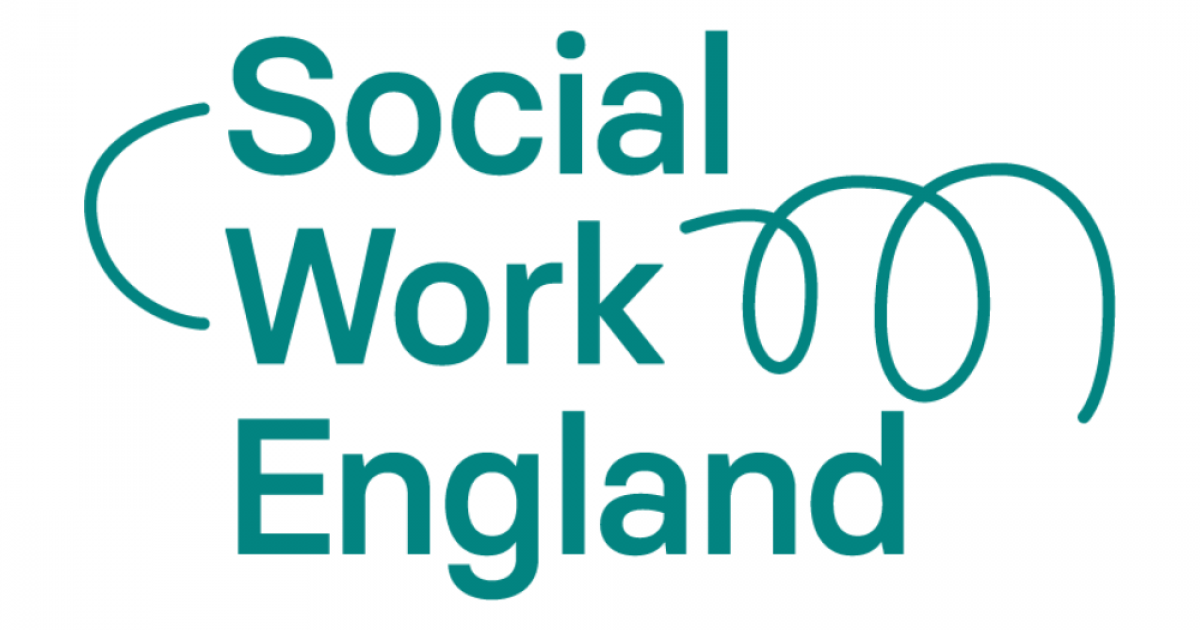Social Work, BA Hons
Study social work with practice-based placements and good employment prospects. Most of our graduates secure jobs in local authority social work, the voluntary sector and social welfare agencies.
This social work degree provides academic knowledge and practical skills you will need for a social work career. You will explore a range of social issues, within children and families and adult social work.
Our teaching staff are active in research and experts in their fields while social work placements with local authorities will give you the skills required to practise as a social worker. Graduates can apply to register with the social work regulator, Social Work England.
We offer an employment-based route where applicants are sponsored by their social care employer to complete the course in four years. The employer would be responsible for finding the placement.
UCAS points
120 (full requirements below)
Course/institution codes
L500 G BA/SW
School
Location
Duration
- 3 years full-time
- 4 years part-time
Start month
September
Home* /international fees 2026/27
£9,790 /£17,975
What you should know about this course
* Home fees
The government regulated undergraduate home tuition fee rate for 2026-27 has been confirmed as £9,790 per year.
What you will study
About the course team
We are an experienced team of academics and industry professionals. Trained postgraduate researchers may also contribute to seminar teaching with latest research insight. Our teaching is informed by research and consultancy work and 97% of our faculty lecturers hold a teaching qualification.
Come and meet us
We are offering virtual events so you can still experience how Greenwich could be the right university for you.
Next Open Days
Got a question?
To find out more about our Open Days and Campus Tours or if you need any assistance, please email opendays@gre.ac.uk.
Entry requirements
Qualifications
- 120 UCAS Tariff points. We accept A Levels, T Levels, BTECs, Access to HE and all other qualifications with UCAS Tariff points.
- In addition, you will need: GCSE English at grade 4/C or above. Equivalent qualifications such as Level 2 English may be considered.
We make Contextual offers to this programme. Applicants that meet specific eligibility criteria will be made a contextual offer with a reduced tariff of up to 16 UCAS Tariff points. Other entry requirements such as GCSEs, Interview, etc., will still need to be met. For further information, please see our Contextual Admissions policy.
Application and selection
- Suitable applicants will be required to complete an online assessment and attend an interview.
- Applicants will also be required to:
- Provide an academic or professional reference.
- Pass an Occupational Health check.
- Pass an Enhanced Disclosure and Barring Service (DBS) check.
- Demonstrate recent experience of caring or supporting vulnerable people in a working or voluntary capacity, this might be combined with caring in a personal capacity. This must be discussed and reflected upon in the personal statement.
For more information, use our contact form or call us on 020 8331 9000.
You can also read our admissions policy.
Available to overseas students?
Yes
Can I use Prior Learning?
Find out more on our Recognition of Prior Learning pages.
Enhanced disclosure
Applicants for this course are required to complete a suitability declaration, an enhanced disclosure and barring service (DBS) check, and an occupational health check.
How you will learn
Teaching
Learning takes place through a combination of timetabled learning and independent study.
You can view more information about how each module is taught within our 'What you will study' section.
Seminars and workshops enable you to discuss and develop your understanding of topics covered in lectures in smaller groups. You will also be able to meet your personal tutor. Timetabled learning may fall between 9am and 9pm depending on your courses and tutorials.
Class sizes
Class sizes vary by module. Lectures are normally attended by larger groups, and seminars/tutorials by smaller groups. This can vary more widely for modules that are shared between degrees. All students will have opportunities for 1-to-1 time with their tutors.
Independent learning
Outside of timetabled sessions, you are also expected to dedicate around 30 hours a week to self-study. This may involve further reading and research, preparing coursework and presentations, and preparing for tests and exams. Our facilities are designed to support you in these activities.
We encourage you to join societies and participate in sporting and other activities to engage in the wider life of the university community.
Overall workload
Your overall workload may consist of contact hours (lectures, seminars, etc.), independent learning, and assessments.
Each credit equates to around 10 hours of study. So, if you receive 50 contact hours for a 30-credit module, you will be expected to complete 250 hours of independent study to complete the module successfully. Contact hours may vary depending on your modules.
Assessment
You can view how each module is assessed within our 'What you will study' section.
Each course has formal assessments which count towards your grade. Some courses may also include 'practice' assignments, which help you monitor progress and do not count towards your final grade.
Feedback summary
We aim to provide feedback on assignments and to release examination results within 15 working days.
Dates and timetables
The academic year runs from September to June.
Full teaching timetables are not usually available until term has started. For any queries, please use our contact form.
Official statistics on Discover Uni
Full time
Part time
Fees and funding
Tuition fees
| Cohort | Full time | Part time | Distance learning |
|---|---|---|---|
| Home* | £9,790 | £2,445 per 30 credits | N/A |
| International | £17,975 | £4,494 per 30 credits | N/A |
University is a great investment in your future. English-domiciled graduate annual salaries were £10,500 more than non-graduates in 2023 - and the UK Government projects that 88% of new jobs by 2035 will be at graduate level.
(Source: DfE Graduate labour market statistics: 2023/DfE Labour market and skills projections: 2020 to 2035).
* Home fees
The government regulated undergraduate home tuition fee rate for 2026-27 has been confirmed as £9,790 per year.
Other costs
Further costs may include (but are not limited to):
- Resources: you may need to purchase books for your studies (estimate, £100 per year)
- Memberships: applying for membership of a professional body may incur further costs (£4.55/month).
The NHS Bursary Office is separate to the University but offers funding for Social Work students. Students will need to apply for this separately.
Scholarships and bursaries
We offer a wide range of financial help including scholarships and bursaries.
The Greenwich Bursary
This bursary is worth £700 for new undergraduate students with a low household income, entering Year 0 or 1 who meet the eligibility criteria.
EU Bursary
Following the UK's departure from the European Union, we are supporting new EU students by offering a substantial fee-reduction for studying.
Financial support
We want your time at university to be enjoyable, rewarding, and free of unnecessary stress, so planning your finances before you come to university can help to reduce financial concerns. We can offer advice on living costs and budgeting, as well as on awards, allowances and loans.
Careers and placements
Will I have a work placement?
Our degree has strong work placement arrangements with local authorities as well as the private and voluntary sectors.
What sort of careers do graduates pursue?
We offer you the chance to enhance your personal growth and develop further into a profession with competitive skills. This degree will prepare you to practice as a social worker, once registered with Social Work England (SWE).
Do you provide employability services?
Our Employability & Careers Service (ECS) is committed to supporting our students and recent graduates in their transition towards a rewarding graduate destination. We aim to empower our students to achieve their potential, with support including:
- CV and cover letter checks
- Application support
- One-to-one careers advice
- Interview tips and support
- Careers fairs
- Internships
- Graduate jobs.
Accommodation
Greenwich
Living in halls of residence is a great way to make new friends and get into the social side of university life. With four great locations, all minutes away from the campus and the centre of historic Greenwich , you will be at the heart of one of the most beautiful university settings in the UK.
Rooms start at £146.30/wk and include Wi-Fi, utility bills, access to our on-campus gym and 24-hour security - and just a 10-minute train journey to central London. Students based at our Greenwich campus can also choose to live the Student Village at Avery Hill, which is only a short ride on our free shuttle bus.
Support and advice
Academic skills and study support
We want you to make the most of your time with us. You can access study skills support through your tutor, our subject librarians, and our online academic skills centre.
Where appropriate, we provide support in academic English and mathematics. If you need to use particular IT packages for a specific module, we provide training for this.
Not quite what you were looking for?
We've got plenty of other courses for you to choose from. Browse our undergraduate courses or check our related courses below.....
Health and social care at the University of Greenwich
You’ll learn from our expert, research-active tutors and be well supported during your work placement. You’ll benefit from great job prospects thanks to our strong links with NHS trusts and social care providers.
Visit our health and social care degrees page.
A comprehensive guide to our new physiotherapy course with Mark Dayson
Embark on an exhilarating path with our latest BSc Hons Physiotherapy course. This hands-on, practical course readies you for the clinical realm through immersive practice placements and beyond.
Health and social care degrees
Social work at the University of Greenwich
Strength and compassion are only part of what it takes to excel as a social worker. Study with us and you’ll gain knowledge, skills and experience to improve people’s lives and succeed in a field that has excellent job opportunities.
Visit our social work degrees page.
Mode of study
Select from the dropdown below.
| Course level | |
| UCAS code | |
| Duration | |
| Location |










